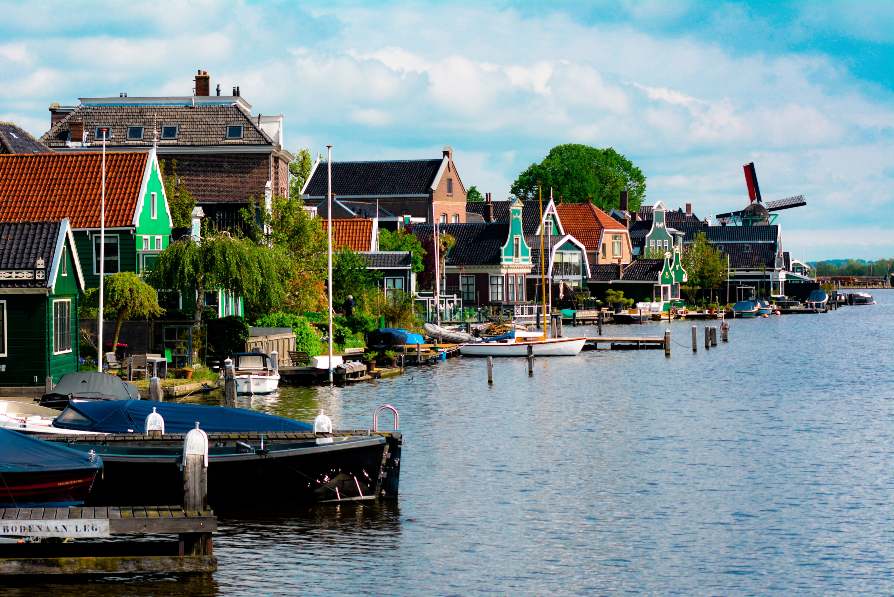Author: Louise Pieterse
Last update: February 4th, 2022.
The Netherlands entered a full lockdown in late December 2021 as Omicron cases rose significantly.
With a 34% drop in intensive care admissions, the government has established that the variant is of less concern than previously expected.
Subsequently, many regulations have been eased in the Netherlands, projecting the country towards a possible COVID “endgame” along with other EU members like France and Denmark.
How to get the Netherlands COVID pass
The Netherlands’ vaccination certificate is available through the CoronaCheck application for those who have:
- received at least one dose of a vaccine (vaccination certificate)
- a negative PCR test result no older than 24 hours (test certificate)
- recovered from the virus in the last 180 days (recovery certificate)
After getting vaccinated or tested, citizens of the Netherlands will receive a retrieval code that is compatible with the CoronaCheck app. They can also use DigiD to log in.
The CoronaCheck app automatically generates a QR code and certificate which is stored on the app for easy access.
For the other option, users can log onto the CoronaCheck website with DigiD to retrieve a PDF of the certificate for printing.
Border restrictions in the Netherlands
Third-country nationals are now allowed into the country, but there are various rules applying to non-EU citizens:
- Non-EU citizens need to show proof of vaccination or a negative PCR test result.
- PCR test results are only valid for 72 hours prior to landing, or 48 hours in the case of an antigen test.
- High-risk areas are still subject to the EU travel ban.
- Self-test results are not accepted.
The following countries have been marked as “safe” for travel to the Netherlands from outside the EU:
- Bahrain
- Chile
- China
- Colombia
- Hong Kong SAR
- Indonesia
- Kuwait
- Macau SAR
- New Zealand
- Peru
- Qatar
- Rwanda
- Saudi Arabia
- South Korea
- Taiwan
- United Arab Emirates
- Uruguay
Unvaccinated travelers from high-risk countries are still barred from entering the Netherlands.
There are special EU entry ban categories that will allow for travel, but there a 10-day quarantine is required in these cases.
Quarantine can be avoided if a traveler can provide proof of a booster shot received more than 14 days before arrival in the Netherlands.
Very high-risk countries include:
- Afghanistan
- Anguilla
- Argentina
- Australia
- Barbados
- Belize
- Bermuda
- Botswana
- The British Virgin Islands
- Canada
- Cape Verde
- Cayman Islands
- Dominica
- French Guyana
- Georgia
- Guadeloupe
- Haiti
- Israel
- Jordan
- Lesotho
- Martinique
- Montenegro
- Mozambique
- Puerto Rico
- Saint Kitts and Nevis
- Saint Vincent and the Grenadines
- Somalia
- Trinidad and Tobago
- United Kingdom
- United States of America
- Venezuela
Many southern African countries who were previously blacklisted for their connection to the Omicron variant have been placed on the less stringent “high-risk” list from January 29th which eliminates the need for quarantine.
This includes South Africa, Eswatini, Nigeria, Mauritius, and Malawi.
Netherlands COVID restrictions eased
After harsh lockdowns over the festive season, Dutch residents are rejoicing in a big step towards a return to normal.
Prime Minister Mark Rutte addressed the media, confirming that the lifting of certain restrictions does not come without risk.
“We are taking a big step today to unlock the Netherlands while the infections numbers are really going through the roof,” he said.
Bars, restaurants, theaters, museums, and various cultural spaces are allowed to operate once more, but opening hours are only until 10 pm.
Football matches can continue, but stadiums can only accommodate a third of their usual capacity.
Can I travel to the Netherlands with my COVID certificate?
The Netherlands is only accepting EUDCC and those from third countries that are a part of the EUDCC program. Over 45 countries participate in the EUDCC system for internationally recognized proof of COVID-19 vaccination.
Travelers who are from third countries with local vaccine certificates that are not EU-accredited will have to take daily COVID tests to gain access to restaurants, bars, cinemas, sporting events, and festivals.
Is it safe to travel to the Netherlands now? COVID-19 stats
The Netherlands has seen several spikes in the number of new COVID-19 cases.
Infection rates are higher than ever before, among the highest in Europe as of the end of January.
A new daily record of 105,840 new infections was reached on February 1st, bringing the total number of infections to over 4.55 million.
More than 33,200,000 vaccine doses have been administered by the start of February. Over 70% of the Netherlands’ population is fully vaccinated.

